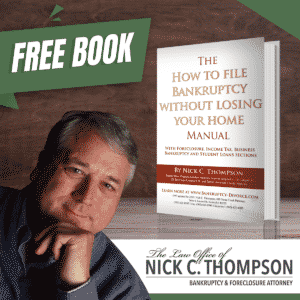A Kentucky default summary or an agreed judgment is a written decision of a court that quickly ends undisputed cases. However, with an agreed judgment, you have a very short period of time to object and appeal. Then, if you fail to appeal and object you essentially agree to the decision. Once a judgment is issued, the creditor starts garnishments and attachments.
A summary judgment happens when there are no disputed facts and there is no need for a trial. If both sides are in agreement as to what happened then the judge makes his decision. There might be an answer but if the defense is weak and all the facts to award the plaintiff or defendant a judgment is proven then there is no need for a trial.
 About Kentucky Default Summary and Agreed Judgement
About Kentucky Default Summary and Agreed Judgement
⎆ What is a summary judgement?
Summary judgments are granted if there are no arguable facts in the case. It actually replaces a trial on the facts when no events are contested. Also, summary judgment motions often file after discovery or answer files. This often happens when homeowners submit their answers and admit to the default without suing the bank back. Unfortunately, failing to include essential defenses speeds up the summary judgment and sale.
Additionally, once a court grants a summary judgment, it is too late to negotiate a settlement or mediate any issues. After that, the case proceeds immediately to the commissioner. At that time, the Commissioner advertises it for two weeks and then sells the property at auction.
You might, however, file bankruptcy before the sale to stop the sale. But, be aware that filing one minute after the purchase or the same minute of the sale will not save the home.
⎆ What are judgement liens?
The first thing the creditor does is to issue a judgment lien against any and all real estate owned by the debtor. This lien attaches to all the real estate in the county it is filed in. Often it is filed in several counties. It becomes very similar to a mortgage and normally the only alternatives to removing it are to pay the judgment or to file bankruptcy and in some cases strip the judgment lien. As soon as the judgment lien is entered and is issued, the creditor becomes a secured creditor with a lien on your home, car, wages, or bank account just like a car lien or mortgage.
A creditor can attach 25% of the debtor’s wages and all of the funds in any of his bank accounts. Some bank accounts which have social security or other protected funds in it may be protected but often the Debtor will have to fight to get the money back after it has been seized. Certain creditors such as the IRS can seize over 25% of debtors’ wages. If you owe more than one judgment each creditor can take 25%. The first creditor takes the first 25%, the second takes the next 25%. Judgments in Kentucky are valid for 20 years and they can be renewed for another 20 years. A judgment will also appear on your credit report and negatively affect your credit score.
⎆ What is a default judgement?
A plaintiff asks for a default judgment if a defendant fails to file an answer within 20 days after being served. If you fail to file an answer within 20 days the court will take the position that you agree with the allegations in the complaint and a default judgment is entered. A defendant can be served by certified mail, sheriff, or by a warning order attorney.
If the plaintiff cannot easily locate the defendant, the court asks a warning order attorney to attempt to locate the defendant. If the warning order attorney cannot locate the defendant the default judgment is issued even though the Defendant may never actually get the summons and complaint.
⎆ Agreed judgement or consent judgment.
In some cases, the defendant might be willing to agree to a judgment in order to stop some part of the collections. Normally, the plaintiff and defendant agree on a certain amount and the defendant agrees to a monthly payment. Therefore, they come to an agreed judgment. However, if the payment is not made the creditor will immediately garnish wages, bank accounts, sell a home, haul away cars, or even furniture to pay the debt in Kentucky.
 Resources for Bankruptcy
Resources for Bankruptcy
Louisville Kentucky Bankruptcy Forms
Defending Against Kentucky Default Judgements
Kentucky Foreclosure Law Process • Video
Learn About Louisville Short Sales
Contact us to see what defenses you have or to negotiate with the debt collector. Nick C. Thompson, Bankruptcy Lawyer: 502-625-0905.



